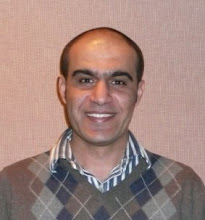Why Kurdistan Must Act:
While at times it seems the task of reforming Healthcare in Kurdistan is overwhelming in scope, paralysis by analysis is not an option. Immediate measures can, and must be made in order to show its citizens, healthcare providers, and the world, that Kurdistan is serious about entering into the 21st century. There is no more visible sign to the rest of the world that Kurdistan is open for business and investment, than building on the relative security of the region by providing a modern healthcare delivery system. But more importantly, reform is needed to save lives. Far too many holes exist in the system today that allow for the lack of necessary access and education of citizens to improve their lives through the proper prevention and treatment of illnesses.
Building the Foundation:
One of the fundamental building blocks that must be in place to affect change is the basic collection and sharing of clinical documentation and medical records. Today this process is archaic and paper-based, if done at all. The result is that every doctor is an island of information. A patient seen by one doctor can show up at another, or in an Emergency Room, and the receiving provider will have no knowledge of any previous history or conditions. Obviously, this environment cannot continue. Patient safety demands reform. But there are many other problems that this broken system creates. The abuse of this system by patients or even providers for personal gain has an enormous financial drain on precious resources that are needed for better patient care.
Even the most advanced nations of the world have significant challenges due to the historical development of the newest EMR and HER systems. Getting vendors and government agencies to agree on standards and then integrate the countless systems out there is a very complex and costly proposition. The advantage Kurdistan has, is that we have no such systems or prior investment to protect. While nirvana may be to have a single, robust, EMR system implemented throughout the region, there are many financial, technical, educational, and cultural reasons that is not realistic anytime soon.
But Kurdistan cannot wait on nirvana. It doesn’t exist yet. There are however steps that can be taken to prepare the way, and make an enormous immediate impact, both in patient care, and in driving out costs and abuse.
Recommended First Step:
One of the pioneers in the development of EMR systems and co-founder of the second largest medical transcription company in the world, Alex Poston, an American, recognized that all of the industry investment was being focused only on the largest University-based hospitals and systems, while smaller medical practices or even standalone doctors were being shut out of the progress made. So he set out to create a company to address this ignored piece of the market. In order to meet the need, the system would need to be able to integrate into virtually any system, be fully supported remotely without the need for onsite IT personnel, be simple for doctors to use, security compliant, and the information must be able to be accessed from anywhere at anytime via an online portal. And it goes without saying, that the market he wanted to serve, would not be able to pay a huge sum of money in capital expenditures. Thus, the creation of VocalEZ.
VocalEZ utilizes the power and ubiquity of the Internet, to securely capture dictation, create clinical documentation, and then make it available to anyone with permission to see the records. By allowing the doctors to simply speak into a microphone, the need for extensive training and support are negligible. The intelligence of the systems resides in the cloud; issues like integration, security, and maintenance are eliminated.
By implementing this solution, Kurdistan could instantly make an impact both in statement and in fact that Healthcare reform is on the way. Every doctor could use this system, regardless of where they are, or what infrastructure they have in place. The result would be a centralized repository for electronic clinical documentation. The healthcare delivery culture would be forever changed immediately. Abuse and inflated costs could be identified and contained. The cost for the system is outline on the attached sheet. These costs are minimal, even by western standards, and the financial impact in Kurdistan offset these expenditures many times over – all while saving lives.
As Kurdistan’s Healthcare system matures, all of the information that has been collected and stored can easily integrate/interface into other systems and processes that are adopted in coming years.
Because this architecture is so flexible, it can be adopted at a doctor, clinic, hospital, or even national level. There are many ways to utilize this system that each can address multiple issues Kurdistan faces in building its Healthcare delivery network. In addition to implementing their technology solution, VocalEZ also provides access to some of the brightest and most experienced Healthcare IT professionals in the world. That value-added insight and expertise can be very helpful as Kurdistan tackles the complex issues of setting the foundation upon which to build a modern Healthcare delivery system.
Sunday, August 9, 2009
Subscribe to:
Post Comments (Atom)












No comments:
Post a Comment